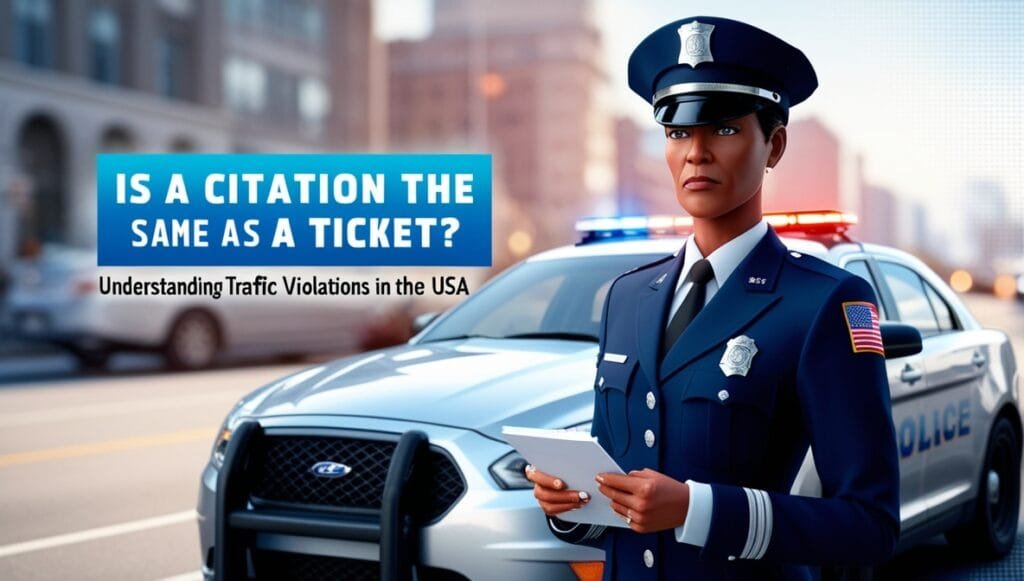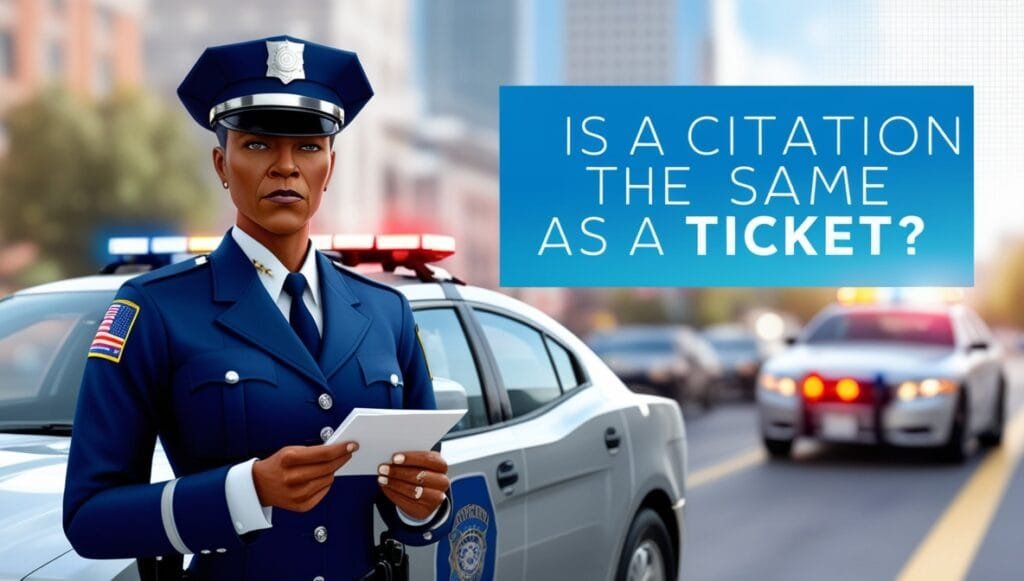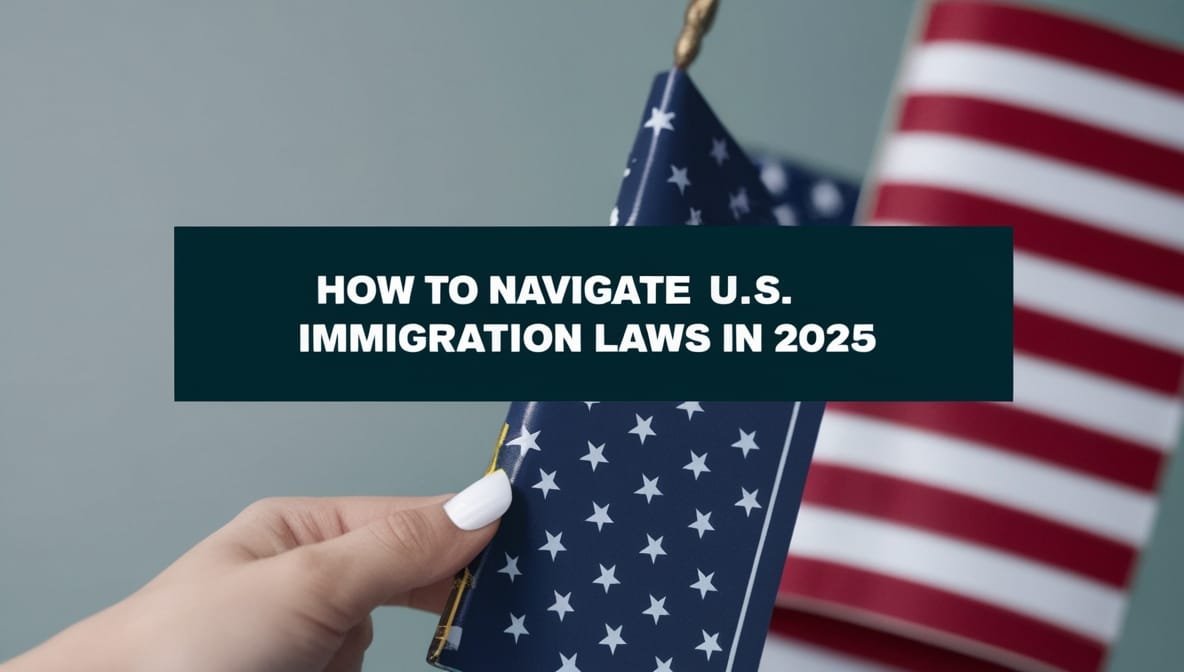Is a Citation the Same as a Ticket : When it comes to traffic violations in the United States, many drivers wonder about the difference between a citation and a ticket. The short answer is: there isn’t one. A citation and a ticket are essentially the same thing, but understanding the nuances can help you navigate the legal system more effectively if you find yourself on the wrong side of traffic law.
What Exactly is a Traffic Citation?
A traffic citation, commonly known as a ticket, is an official document issued by a law enforcement officer when a driver violates traffic laws
Whether you’re caught speeding, running a red light, or committing any other traffic infraction, the piece of paper you receive is both a citation and a ticket.
Key Points About Citations/Tickets

- Legal terminology: “Citation” is the formal legal term, while “ticket” is the colloquial expression used by most drivers
- Issuing authority: Citations are typically issued by police officers, but in some jurisdictions, automated systems like speed cameras can also generate citations
- Types of violations: Citations can be issued for both moving violations (like speeding) and non-moving violations (such as parking illegally)
- Consequences: Receiving a citation can result in fines, points on your driving record, and potential increases in insurance premiums
People Also Ask
Q: Is a citation worse than a ticket?
A: No, a citation and a ticket are the same thing. The terms are used interchangeably
Q: Do you have to pay a citation?
A: In most cases, yes. Citations usually come with fines that must be paid, unless you choose to contest the ticket in court.
Q: Does a citation go on your record?
A: Yes, most citations will appear on your driving record. Minor violations typically stay on your record for 3-5 years.
Q: How much does a speeding ticket cost?
A: The average cost of a speeding ticket in the United States is $150, but fines can range from $50 to $2,500 depending on the state and severity of the violation
The Impact of Citations on Your Driving Record and Insurance

Receiving a citation can have lasting effects beyond the initial fine. Here’s what you need to know:
- Insurance premiums: Your car insurance rates may increase after receiving a citation. For example, in California, a single speeding ticket can raise your annual premium by up to $842
- Points system: Many states use a point system, where citations add points to your driving record. Accumulating too many points can lead to license suspension
- Long-term consequences: Serious violations like DUIs can remain on your record for up to 10 years, affecting your insurance rates and employment opportunities
How to Handle a Citation
If you receive a citation, you typically have three options:
- Pay the fine: This is an admission of guilt and will result in the violation appearing on your record8.
- Contest the citation: You can challenge the ticket in court, either representing yourself or hiring an attorney
- Seek a deferral: Some jurisdictions offer programs where you can pay a fee and, if you maintain a clean record for a specified period, the citation will be dismissed8.
Tips to Avoid Citations
- Obey traffic laws: The simplest way to avoid citations is to follow all traffic rules and speed limits.
- Stay informed: Keep up-to-date with local traffic laws, especially when traveling to different states.
- Maintain your vehicle: Ensure all lights and safety equipment are functioning properly to avoid non-moving violations.
- Use technology wisely: Consider using legal radar detectors or apps that alert you to speed limits and traffic conditions.
By understanding what a citation is and how it can impact your driving record and insurance, you can make more informed decisions on the road and when dealing with traffic violations. Remember, safe driving is always the best policy to avoid citations altogether.






